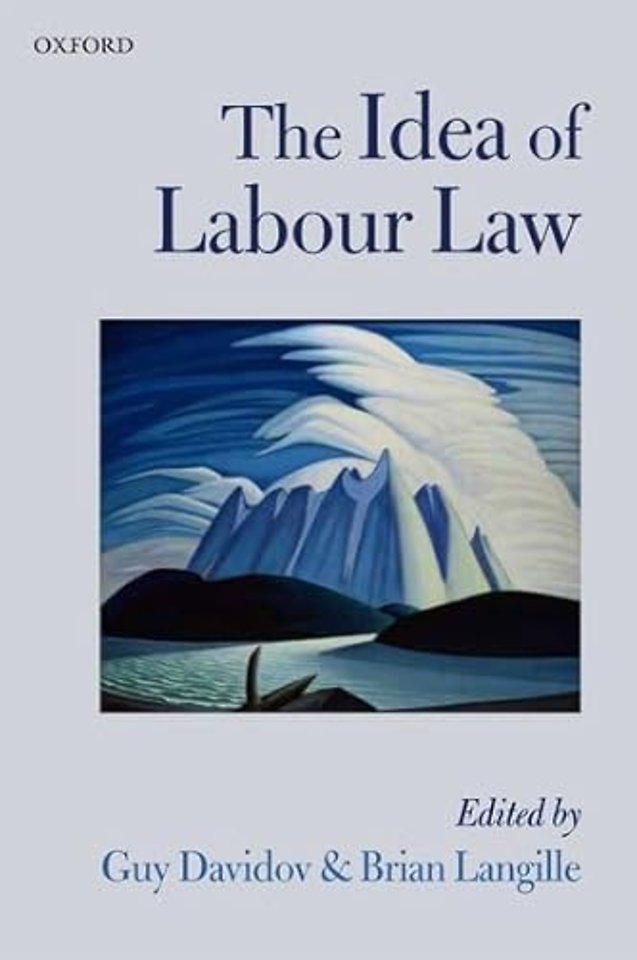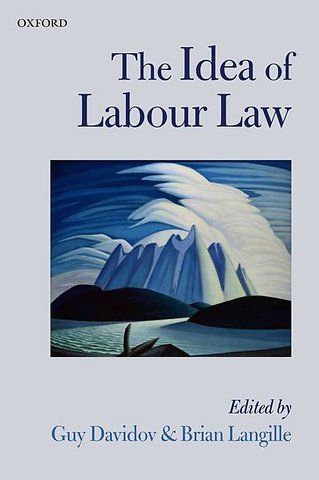The Idea of Labour Law
Samenvatting
Labour law is widely considered to be in crisis by scholars of the field. This crisis has an obvious external dimension - labour law is attacked for impeding efficiency, flexibility, and development; vilified for reducing employment and for favouring already well placed employees over less fortunate ones; and discredited for failing to cover the most vulnerable workers and workers in the "informal sector". These are just some of the external challenges to labour law.
There is also an internal challenge, as labour lawyers themselves increasingly question whether their discipline is conceptually coherent, relevant to the new empirical realities of the world of work, and normatively salient in the world as we now know it.
This book responds to such fundamental challenges by asking the most fundamental questions: What is labour law for? How can it be justified? And what are the normative premises on which reforms should be based? There has been growing interest in such questions in recent years.
In this volume the contributors seek to take this body of scholarship seriously and also to move it forward. Its aim is to provide, if not answers which satisfy everyone, intellectually nourishing food for thought for those interested in understanding, explaining and interpreting labour laws - whether they are scholars, practitioners, judges, policy-makers, or workers and employers.
Specificaties
Inhoudsopgave
The Idea of Labour Law in Historical Context
1:Labour Law After Labour, Harry Arthurs
2:Factors Influencing the Making and Transformation of Labour Law in Europe, Bob Hepple
3:Re-Inventing Labour Law?, Manfred Weiss
4:Hugo Sinzheimer and the Constitutional Function of Labour Law, Ruth Dukes
5:Global Conceptualizations and Local Constructions on the Idea of Labour Law, Adrián Goldin
6:The Idea of the Idea of Labour Law: A Parable, Alan Hyde
Normative Foundations of the Idea of Labour Law
7:Labour Law's Theory of Justice, Brian Langille
8:Labour as a 'Fictive Commodity': Radically Reconceptualizing Labour Law, Judy Fudge
9:Theories of Rights as Justifications for Labour Law, Hugh Collins
10:The Contribution of Labour Law to Economic and Human Development, Simon Deakin
Normative Foundations and Legal Ideas: Rethinking Existing Structures
11:Re-Matching Labour Laws with Their Purpose, Guy Davidov
12:The Legal Characterization of Personal Work Relations and the Idea of Labour Law, Mark Freedland and Nicola Kountouris
13:Ideas of Labour Law - A View From the South, Paul Benjamin
14:Informal Employment and the Challenges for Labour Law, Kamala Sankaran
15:The Impossibility of Work Law, Noah Zatz
16:Using Procurement Law to Enforce Labour Standards, Catherine Barnard
17:Labor Activism in Local Politics: From CBAs to 'CBAs', Katherine V.W. Stone and Scott L. Cummings
New Labour Law Ideas: Rethinking Existing Boundaries
18:The Broad Idea of Labour Law: Industrial Policy, Labour Market Regulation, and Decent Work, John Howe
19:The Third Function of Labor Law: Distributing Labor Market Opportunities Among Workers, Guy Mundlak
20:Beyond Collective Bargaining: Modern Unions as Agents of Social Solidarity, Gillian Lester
21:From Conflict to Regulation: The Transformative Function of Labour Law, Julia López, Consuelo Chacartegui, and César G Cantón
New Ideas of Labour Law from an International Perspective
22:Out of the Shadows? The Non-Binding Multilateral Framework on Migration (2006) and Prospects for Using International Labour Regulation to Forge Global Labour Market Membership, Leah Vosko
23:Flexible Bureaucracies in Labor Market Regulation, Michael Piore
24:Collective Exit Strategies: New Ideas in Transnational Labour Law, Silvana Sciarra
25:Emancipation in the Idea of Labour Law: Commoditization, Resistance and Distributive Justice beyond borders, Adelle Blackett







